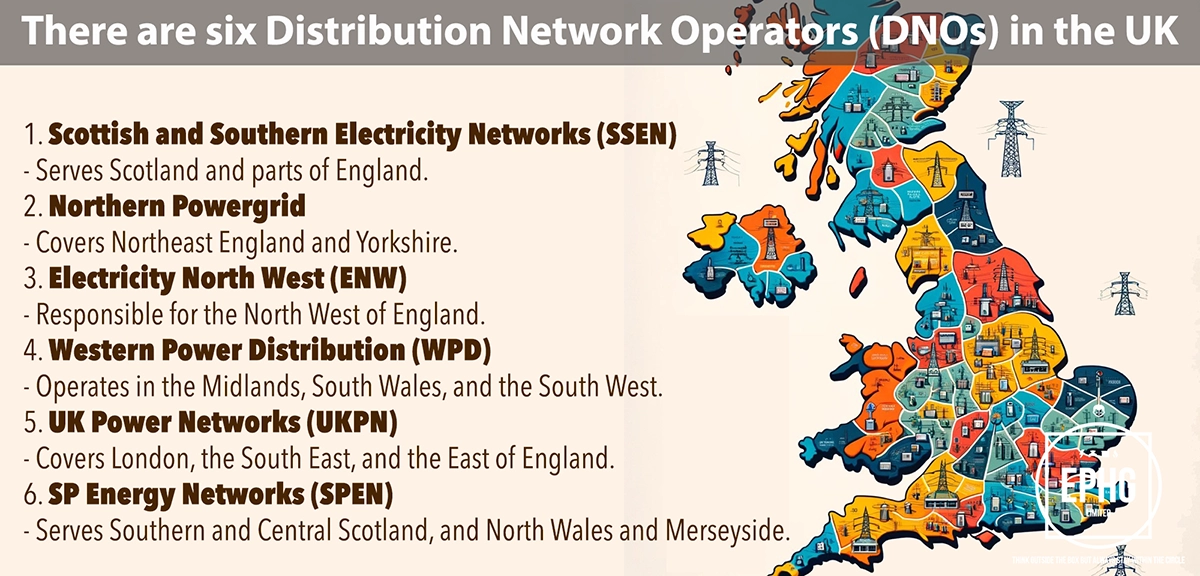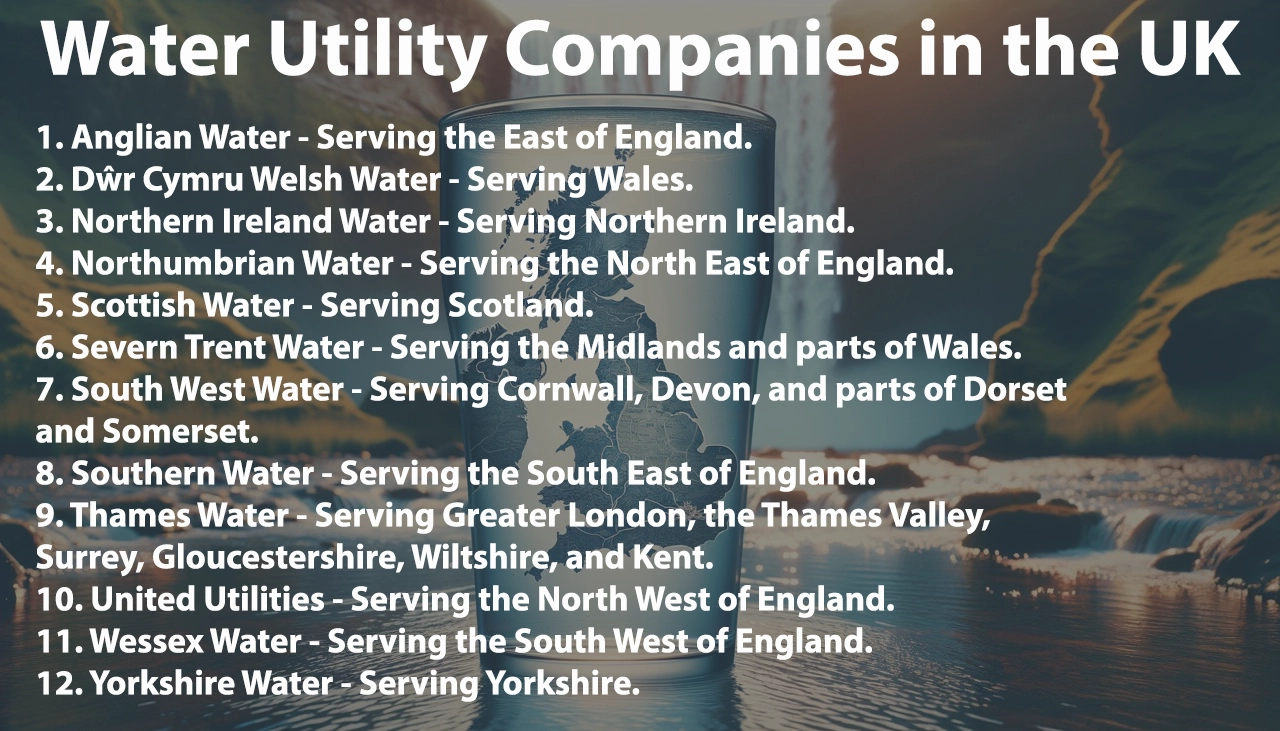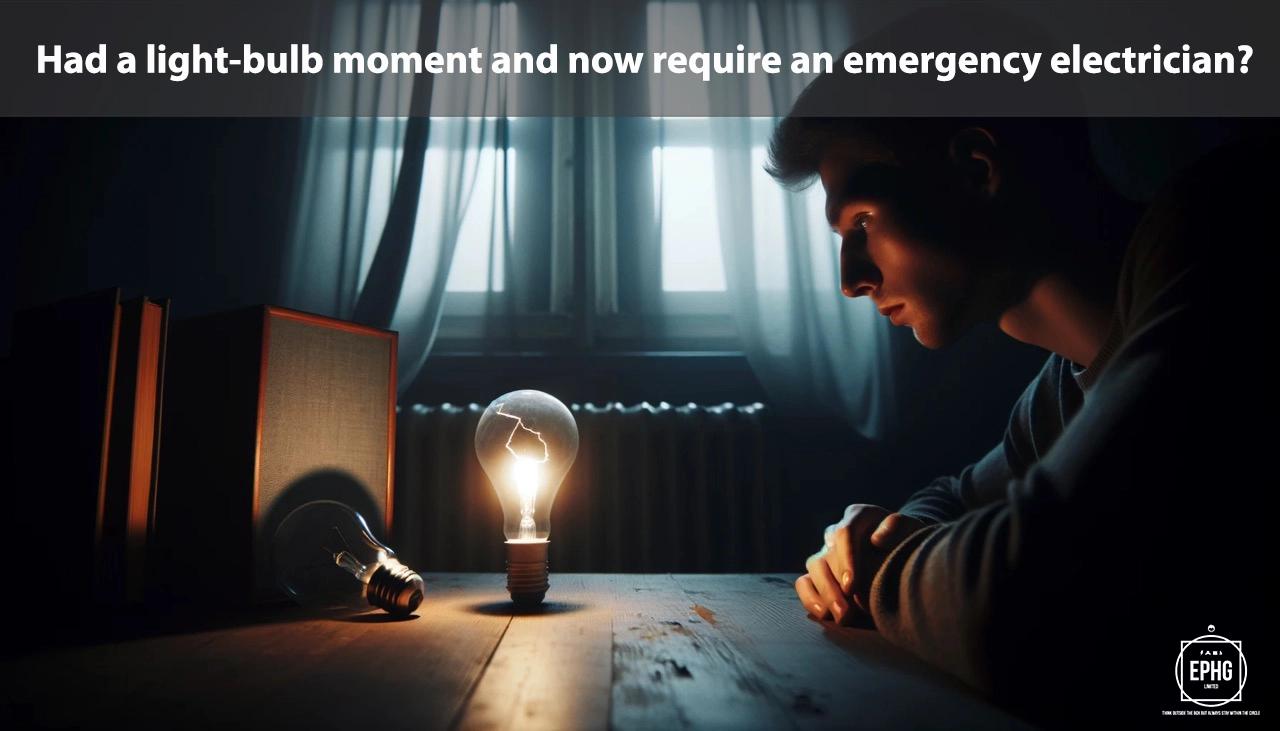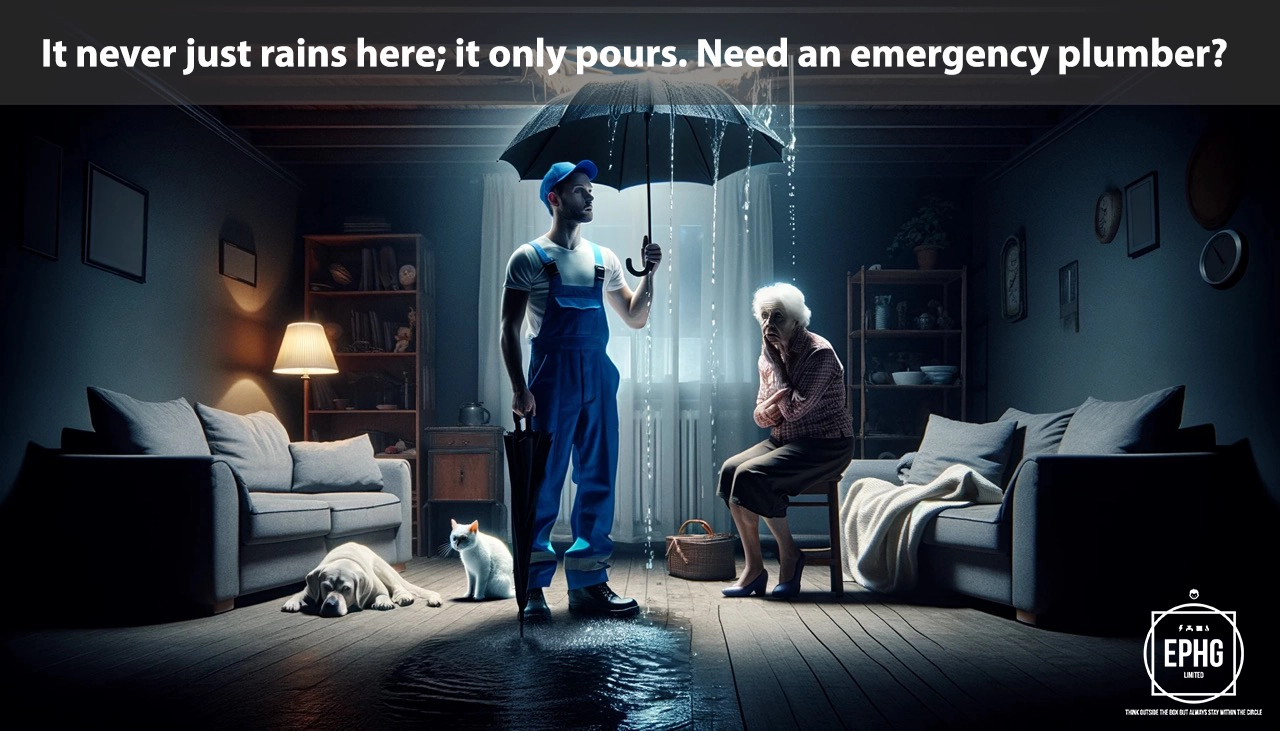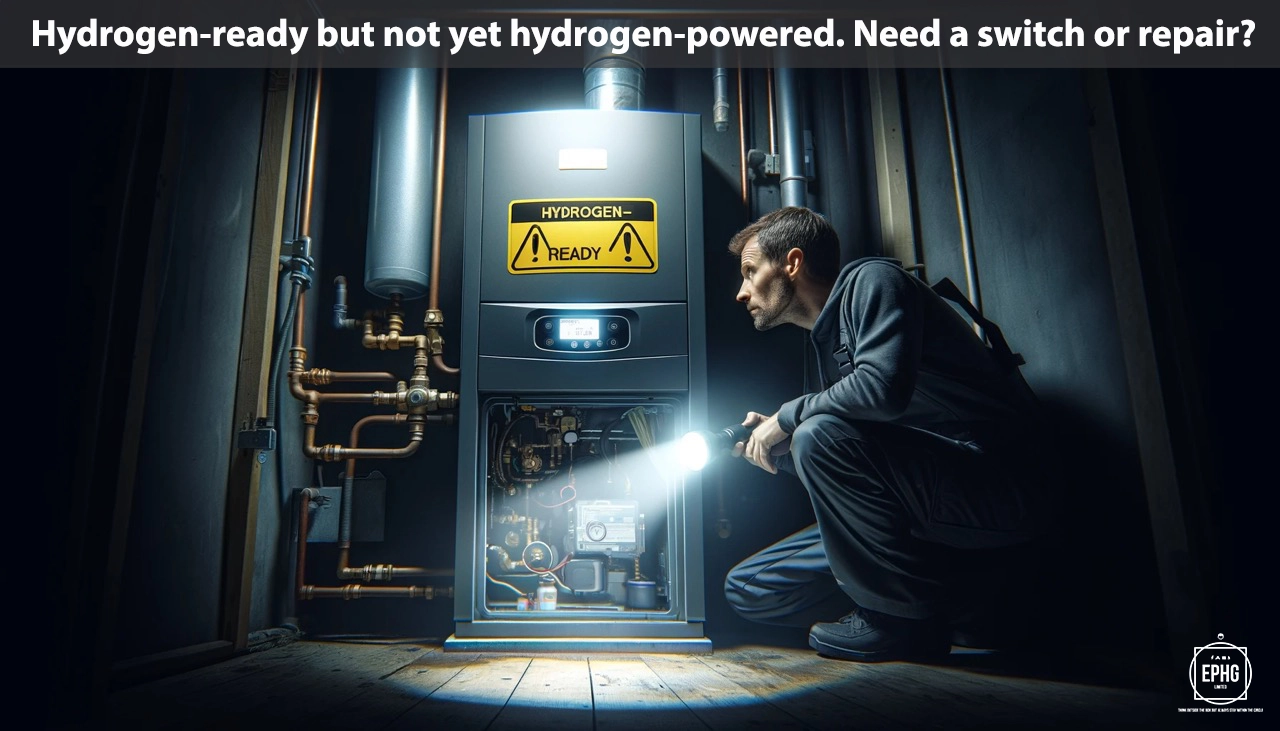
EX Postcodes for Utilities & Services in Exeter and Devon
Introduction: The EX postcode area, covering Exeter and surrounding parts of Devon as well as some regions of Somerset, offers a comprehensive view of both rural and urban utility services. This section explores the essential aspects of water and electricity supply in the area, providing valuable information for both locals and visitors.
Water in Devon
Where does the water supply come from in Devon, and is there ever a shortage of water?
In Devon, the water supply mainly originates from rivers such as the River Exe, River Taw, and River Torridge, alongside numerous reservoirs throughout the region. These natural sources are vital for fulfilling local demand, with treatment plants ensuring the water meets health and safety standards before it's distributed. While water provision in Devon is typically stable, the region can face challenges due to climate change, leading to occasional restrictions during extended periods of dry weather. Conservation is a key focus, with local authorities and environmental agencies striving to ensure a balance between demand and sustainability. Residents are urged to conserve water to help maintain a stable supply.
What is the hardness & quality of the water in Devon, and can this affect your health?
The hardness of the water in Devon varies; some areas have soft water, while others experience moderately hard water, especially where water flows through limestone. In many parts of Devon, the soft water leads to less limescale build-up and more efficient use of soap, offering conditions similar to those found in Aberdeen. The water quality in Devon consistently adheres to strict safety and health standards, making it safe for all standard uses. Although the mineral content in the water can vary, it typically does not significantly affect health. In fact, natural minerals in water can be beneficial. Water quality is continuously monitored to ensure the highest safety standards and provide the best service to residents.
Electricity in Devon
Where does the electric supply come from in Exeter and Devon, and what is the future of energy there?
The electricity supply in Exeter and Devon primarily comes from the national grid, featuring a mix of energy sources including fossil fuels, nuclear power, and an increasing share of renewable energies such as wind, solar, and biomass. Exeter, along with its rural landscapes and coastal areas in Devon, provides ideal conditions for wind farms and marine energy projects. The city of Exeter has seen a noticeable increase in solar energy installations in residential and commercial properties, contributing significantly to the region’s shift towards sustainable energy.
The future of energy in Exeter and Devon is aimed at further reducing carbon emissions and boosting the use of renewable resources. There is a substantial potential for expansion in offshore wind energy and tidal power, especially along Devon's extensive coastline. Both Exeter and the wider county are exploring the possibilities of geothermal energy. With continuous investments in renewable energy technologies and infrastructure, the goal is for Exeter and Devon to become leading areas in renewable energy generation and models for rural and urban energy independence in the UK.
When is hydrogen coming to gas boilers in Exeter and Devon?
The transition to hydrogen gas boilers in Exeter and Devon is part of a broader national strategy to decarbonize heating in the UK. The timeline for this transition in Exeter remains flexible, mirroring the broader Devon region, and dependent on the success of pilot projects and advances in hydrogen technology. Exeter, with its strong commitment to sustainability and clean energy, is poised to become a pivotal area in this transition. Residents of Exeter and Devon are encouraged to stay informed about these developments and consider adopting energy-efficient solutions for their homes as the region gears up for the future of heating. Community engagement and government initiatives will be crucial in facilitating this energy shift.
Where does the wastewater go in Exeter and Devon?
In Exeter and Devon, the management of wastewater is crucial for preserving the environmental health and public safety of the region. Wastewater from homes, businesses, and agriculture is collected and channeled to treatment facilities across the county, including significant plants in Exeter and Plymouth. These facilities employ advanced processes to eliminate contaminants before the cleaned water is returned to local watercourses, such as the River Exe and the River Taw. Efforts are continuously made to enhance wastewater treatment technologies and minimize environmental impacts. A key focus is on protecting the beautiful natural landscapes and coastal waters of Exeter and Devon, ensuring they remain pristine for future generations.
Regions and Services:
The EX postcode area, covering parts of Devon and extending into parts of Somerset and Dorset, showcases a mix of rural charm and urban efficiency. Key regions within this area include:
- Exeter: A bustling city with a comprehensive utility infrastructure, supporting both residential and commercial needs with advanced electrical and gas services.
- Barnstaple, Bideford, and Ilfracombe: Northern Devon towns with a blend of historic and modern amenities, actively integrating renewable energy solutions alongside traditional utilities.
- Tiverton, Honiton, and Sidmouth: Market towns and seaside communities in East Devon, where sustainable practices are increasingly adopted, enhancing the area's natural beauty and utility reliability.

Regions within the EX Postcode
Exeter and Surrounding Areas
- EX1: Exeter city centre, St. Thomas, Pennsylvania
- EX2: St. Leonard's, Alphington, Marsh Barton
- EX3: Topsham, Exton
- EX4: Exwick, St. David's, Beacon Heath
- EX5: Broadclyst, Silverton, Westwood
- EX6: Starcross, Kenton, Mamhead
- EX7: Dawlish
- EX8: Exmouth
- EX9: Budleigh Salterton
- EX10: Sidmouth
- EX11: Ottery St Mary
- EX12: Seaton
- EX13: Axminster
- EX14: Honiton
- EX15: Cullompton
- EX16: Tiverton
- EX17: Crediton
- EX18: Chulmleigh
- EX19: Winkleigh
- EX20: Okehampton
- EX21: Holsworthy
- EX22: Bideford
- EX23: Bude, Stratton
- EX24: Colyton
- EX31: Barnstaple
- EX32: Barnstaple, Bishops Tawton
- EX33: Braunton, Croyde
- EX34: Ilfracombe, Woolacombe
- EX35: Lynmouth, Lynton
- EX36: South Molton
- EX37: Umberleigh
- EX38: Torrington
- EX39: Bideford, Westward Ho!, Northam
Notable Features and Services
- Diverse landscapes ranging from coastal towns to rural countryside, supporting a mix of urban and agricultural lifestyles.
- Comprehensive utility services including water, electricity, and gas, increasingly integrating renewable energy sources.
- Areas of natural beauty and historical significance, offering both recreational and educational opportunities.
